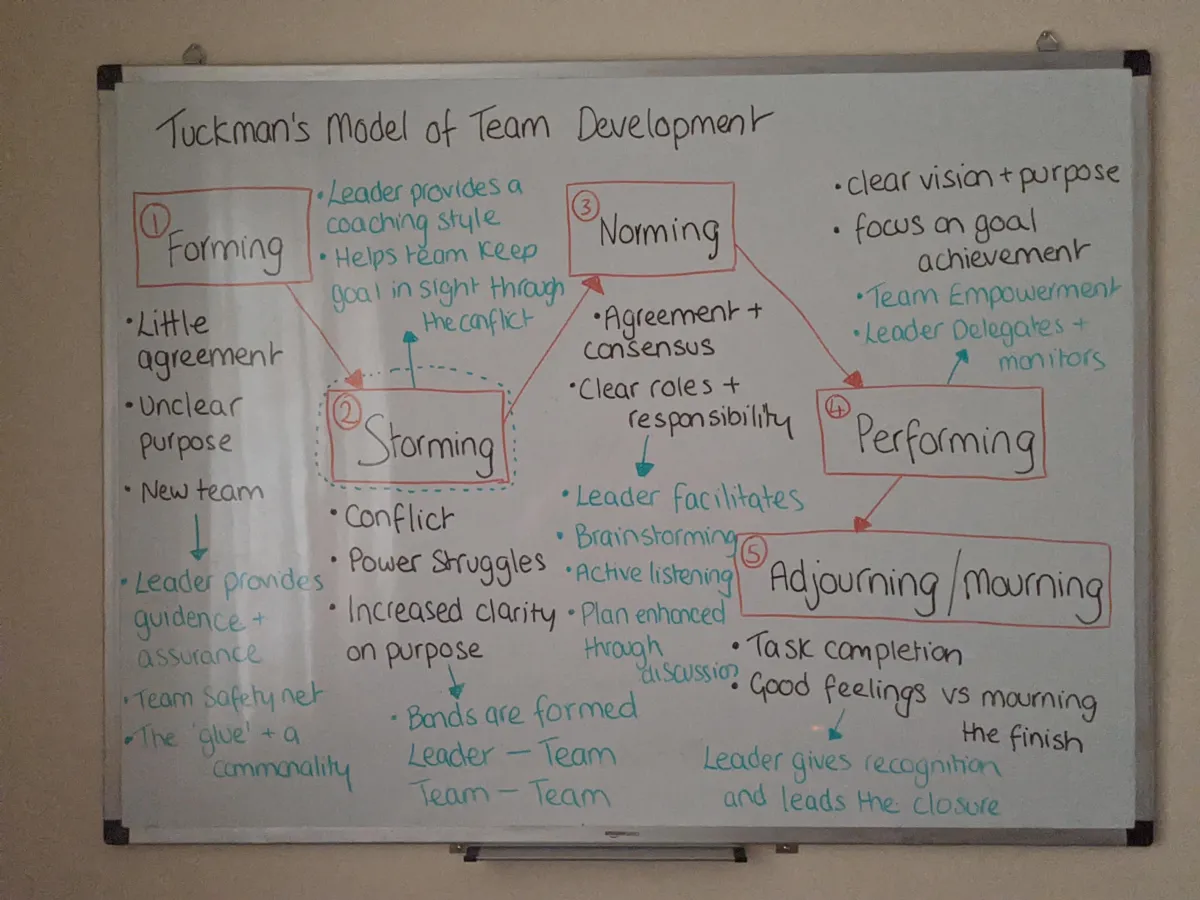Are you a self-funded individual looking to take our CPD Accredited Change Management Training? Click Here!
"The purpose of learning is growth, and our minds, unlike our bodies, can continue growing as we continue to live."
- Mortimer Adler

Wild Clarity Wisdom – How Teams Develop and How You As A Leader Can Support!
Have you ever wondered why a new team can feel a bit like a children’s playground for the first few days/weeks (months?!)?
What do we go through when we build teams? And what can we as leaders do to help?
Let me introduce you to Tuckman’s model of team development – Forming, Storming, Norming, Performing and Adjourning/Mourning. Now you may have seen it before…but in this Wild Clarity wisdom episode I highlight what part you can play as a leader to help the team transition through it…without getting in the way!
Forming – During this stage people are a little unsure. They are in a new team, may not be sure of the purpose or their role within the team. As they start to speak with each other, although they may not agree with each other in some areas, they are being polite (generally!) and getting to know each other. An example of this would be when you join a networking group or the start of the school year, especially if it is a new school.
Leaders, this is the stage where you provide guidance and direction, create a safe space for them to start talking, and give them the purpose as a commonality for them to build on.
Storming – This stage can feel a bit scary as a leader! Your team is getting to know each other, are generally more comfortable to say what they think and they may start to test and challenge…each other, and you. This is okay…it’s a natural apart of team development and the best thing you can do as a leader is to not shy away from it…don’t try and fix it…monitor it but let it happen – trust me, it’s where the magic starts happening…barriers start to get broken down, trust starts building, and team members start to figure out how they can work with each other, using their strengths and covering any gaps…it may be uncomfortable but journey through it and it will make a stronger team!
While the team is going through this, help coach them through it, keeping the goal in sight throughout the conflict.
Norming – At this stage, the team have established a way of working together (phew!) and their focus will turn to the achievement of outcomes. They know their role within the team and what they are responsible for, and they will have a clear understanding of any wider objectives. You’ll find that communication across the group becomes more open, commitment to the team is stronger and there’s a desire to resolve issues objectively (instead of emotions dominating as they often do in ‘storming’)
At this stage, the team is effective. As a leader, your job is to facilitate them, helping them to brainstorm, actively listening so you can recognise any issues or blockers coming up, and provide a safe space to discuss and plan.
Performing – As we go into this stage, the team are both effective and efficient. They are working together, in the most optimum way, they have a sense of unity and a shared vision, and they choose to work collectively, in support of each other. Importantly, they have the desire to learn from experiences, and learn from each other. At this stage, they should also be able to give each other feedback and act on it.
At this stage, the leader knows they have done their job! The team knows the team vision and goals, and the leader can trust and empower them, whilst they monitor and support.
Adjourning/Mourning – This stage was added to Tuckman’s model at a later date…and it can feel like a paradox…satisfaction of a job well done, but mourning the ending of an effective and high performing team. Of course, it may be that this stage happens quickly due to a project team finishing their tasks, or after a number of years of working together as a team…but whenever it happens, as a leader, you must approach this stage with empathy, compassion, and recognition of both the achievements and the feeling of loss as they disband.
A couple of important points to note (and are in the episode)!
Teams will generally go through this in a linear way, BUT, they can go backwards (for example, from norming to storming when a new member joins the team), and may even oscillate between the stages. They can also just get stuck in a stage…and this is why, as a leader, you need to be aware of the stages and monitor the progress throughout, so that you can support and nudge as needed!
If you enjoyed this bite sized piece of learning, follow me on social media for more!
A quarterly change management newsletter, specifically created for organisations, to provide you tools for leading through change and to keep you informed of the training and support the we can offer.
If you'd like to hear about these then sign up to our quarterly newsletter!
© Copyright 2024 Glass Ripple Consulting. All Rights Reserved.